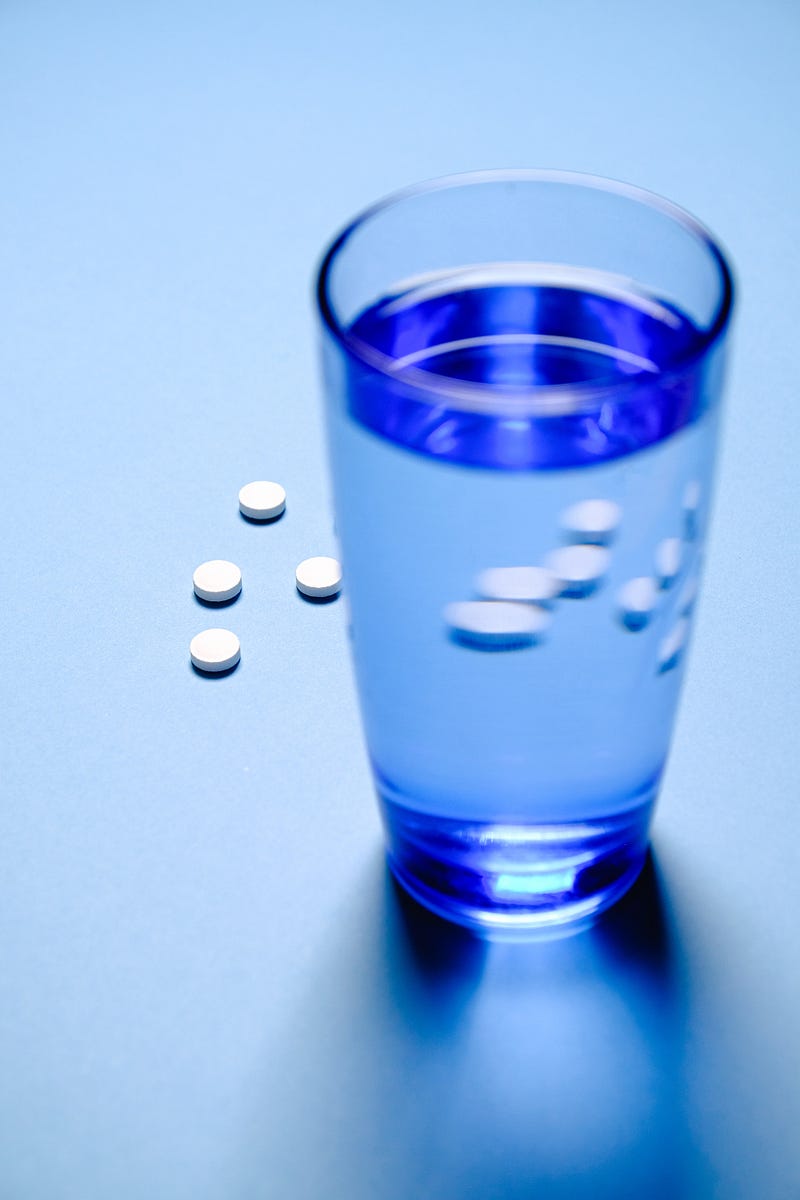# Scientific Insights on Hangovers: What Really Works?
Written on
Chapter 1: The Age-Old Struggle with Hangovers
Humans have been consuming alcoholic beverages since the Stone Age, with evidence of beer production dating back 13,000 years near Haifa, Israel. It's likely that our ancestors suffered from hangovers long before the term even existed. Throughout history, people have attempted to find cures for these unpleasant symptoms. The methods varied widely, with some being quite peculiar—like Pliny the Elder's recommendation to eat roasted canaries in the first century AD. Others were rather unappealing; for instance, ancient Mongols believed that marinated sheep's eyes could alleviate hangovers, while in Bolivia, bull penis broth is still a popular remedy today.
In ancient Egypt, it was thought that sauerkraut could remedy a hangover. Over the centuries, countless remedies have surfaced, filling volumes of literature.
Researchers Investigate Modern Hangover Cures
Modern solutions have included an assortment of herbal extracts, vitamins, amino acids, and anti-inflammatory medications. But do any of these truly alleviate hangover symptoms? A team from University College London and one of the UK's National Health Service trusts conducted a review of 21 hangover remedies documented in scientific literature. Some of these included:
- L-cysteine
- N-acetyl-L-cysteine (ACC)
- L-ornithine
- A combination of L-cysteine, thiamine (B1), pyridoxine (B6), and ascorbic acid
- Yeast, thiamine (B1), pyridoxine (B6), and riboflavin (B2) (marketed as Rapid Recovery)
- Various anti-inflammatory drugs (e.g., loksprofen, toflenamic acid, naproxen combined with fexofenadine)
- Propranolol, clomethiazole, pyritinol, curcumin, and various plant extracts.
Despite the wide array of options, the effectiveness of these remedies is generally minimal and often unsupported by subsequent studies.

In a systematic review published in the journal Addiction, researchers scrutinized existing studies on hangover remedies. While a few reports suggested that certain methods might mitigate hangover symptoms, the evidence remains weak and often unverified by independent research.
Methodological Challenges in Hangover Research
One significant issue with hangover studies is their methodology. Many involve subjects consuming large quantities of alcohol in a short timeframe, which can skew results. Some studies consider food intake during drinking, while others do not. Alarmingly, eight out of the 20 methods examined were tested exclusively on men, limiting the applicability of the findings.
Moreover, there are no studies assessing the effectiveness of widely used non-steroidal anti-inflammatory drugs (NSAIDs) like paracetamol or aspirin in relation to hangover symptoms. Additionally, comparisons between hangover treatments and placebos—standard practice in clinical trials—are lacking.
The scientific community agrees that hangovers merit more rigorous research. Establishing a scientific scale to measure hangover symptoms could significantly enhance future studies.

Dr. Emmert Roberts, the lead author of the review, stated, "Hangover symptoms can lead to considerable discomfort and hinder our professional and academic performance. With frequent media claims about the effectiveness of various remedies, it is crucial to scrutinize these substances’ efficacy." He further emphasized that the quality of research on hangover cures is alarmingly low, highlighting the need for more thorough evaluations.
"The most reliable way to prevent a hangover remains to abstain from alcohol or to consume it in moderation," Dr. Roberts noted. Surprisingly, even hydration does not effectively alleviate hangover symptoms, according to some studies.
What Causes Hangover Symptoms?
Understanding why we feel unwell after excessive drinking is also a complex issue. Ethyl alcohol breaks down into acetaldehyde—a more toxic compound than alcohol itself—within our bodies. Some researchers believe this byproduct is largely responsible for hangover symptoms. Eventually, acetaldehyde is further broken down into acetic acid, but the initial effects can be quite debilitating.

Consequently, it's advisable to limit alcohol consumption, ideally to none. Although some studies suggest that small amounts of alcohol may benefit brain health, most findings indicate that alcohol is predominantly harmful. Notably, it raises the risk of various cancers, including breast cancer in women and cancers of the mouth, throat, and stomach.
Chapter 2: The Science Behind Alcohol’s Impact on Health
The first video titled "Alcohol, Hangovers & How to Cure a Hangover Based on Science | Dr. Andrew Huberman" delves into the scientific perspective on hangovers and provides insights on potential remedies based on research.
Another insightful video, "What Alcohol Does to Your Body, Brain & Health," explores the broader implications of alcohol consumption on health and well-being.
In conclusion, while the quest for effective hangover cures continues, the best strategy remains moderation and awareness of the risks associated with alcohol consumption.